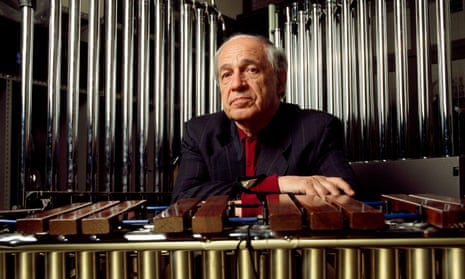Pierre Boulez was the last survivor of the generation of composers who defined the European avant garde in the years after the second world war. It may be that in the long term his achievements as a composer will not be rated as highly as those of his contemporaries such as Karlheinz Stockhausen, Luigi Nono and Luciano Berio, with whom he shared his mission to revolutionise new music and to rid it of its traditional associations. But through his activities as a conductor and musical educator, his influence on musical life on both sides of the Atlantic has been incalculable, and arguably greater than that of any other musician of the last half century. How we listen to the music of the 20th century that is so firmly established in the repertory has been largely shaped by the way in which Boulez conducted it and the performing standards he set.
In the 1950s and early 60s his activities as a fierce polemicist, railing against the musical establishment and the traditions it embodied, and dismissing opera as an outmoded art form, went hand in hand with his greatest productivity as a composer. Boulez’s ever-increasing activities as a conductor from the 1960s onwards coincided with a distinct falling off in his activities as a composer. Though the sonic worlds that he created remained as glittering and intoxicating as ever, and acquired a whole dimension with the use of the electro-acoustic techniques developed at Ircam, the Paris research institute he founded at the behest of the French government in the 1970s, new works tended to appear less frequently, and “works in progress”, scores to which Boulez planned to return for further elaboration or revision, became an increasing feature of his catalogue.
Whether interpreting the music of the past had become a welcome surrogate for his dwindling creativity, or merely took up too much of the time he had previously spent composing, is hard to say. But the story of the second half of Boulez’s career as a composer will remain a tantalising litany of unfinished and unrealised projects. The last of them, announced as recently as 2010, was a plan to compose his first opera, to be based upon Samuel Beckett’s Waiting for Godot.
Having cultivated the image of the angry young man of new music in the post-war years, it took a long time in public perception for the austere, uncompromising radical to morph into the hugely respected and revered figure Boulez became in the last decades of his life. When I first met him in the mid-1970s, some of that forbidding earlier aura remained, but his warmth, friendliness and humour were immediately disarming, and totally belied the forbidding image. As he mellowed further over the following decades, he also began to conduct music by a number of composers he would surely have dismissed out of hand in his hardline early years. That inevitably required some quiet revisionism. The last time we met, in 2011 (a few months before he conducted his last concert in London, a performance of his own Pli selon Pli), it was a surprise to hear him enthuse about the works of the Polish composer Szymanowski and to hear him claim that it was music he had admired since he first heard it as a schoolboy in 1942, begging the question of why, in that case, it had taken him more than 60 years to get around to conducting any of it?
Like everything he conducted, though, it was the precision and lucidity of his performances that were so revealing, and which illuminated a range of 20th-century music in a way that few conductors before him had ever approached. And while a good handful of Boulez’s own works – the second and third piano sonatas, Le Marteau Sans Maître, Pli Selon Pli, Eclat/Multiples, Sur Incises, the orchestral Notations (another unfinished project) – will surely endure, it is his achievement as a conductor and educator in moving the music of our time and of the immediate past into the mainstream of our concert life that is likely to be his lasting, crucially important memorial.

